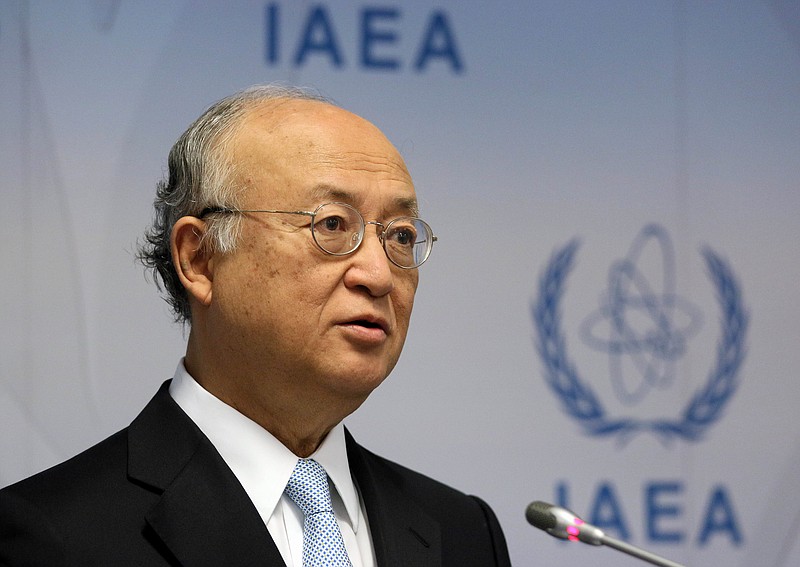As the calendar inches closer to the June 30 deadline for a nuclear deal between the United States and Western officials and Iran, the likelihood of Iran being fully forthcoming in such a deal seems ever more fleeting.
Unfortunately, Western diplomats said earlier this week they were "more likely to get a deal than not." In essence, that means Western powers have been more likely to make concessions to Iran to get that deal.
That should make Congress, which will get the opportunity to examine a deal and give its thumbs-up or thumbs-down, more dubious about its merit.
The latest dispute involves whether Iraq will have to immediately answer questions about its past atomic work. The Obama administration, following a November 2013 interim accord, said a final deal "would include resolution of questions concerning the possible military dimension of Iran's nuclear program."
Now, diplomats say those questions won't be answered by June 30 and may become tied to the suspension of some of the sanctions on the country.
Iran also has backed down this week on language that U.S. Secretary of State John Kerry said in April would keep certain measures "in place indefinitely." Kerry, in fact, reiterated the point because he said it had been misinterpreted, misstated and misrepresented. "There will be no sunset to the deal that we are working to finalize - no sunset, none," he said.
Similar statements using the term "forever" were used by Secretary of Energy Ernest Moniz and Department of State spokeswoman Marie Harf.
But Seyed Abbas Araqchi, Iran's deputy foreign minister and senior negotiator, said such an agreement "will last for a specified period of time, and none of the measures envisaged in it will be permanent." Any talk about "forever," he said, is "a worthless fallacy."
Sen. Robert Menendez, D-N.J., took to the Senate floor Thursday to say the problems are even worse.
Contrary to what it agreed to in the Joint Plan of Action, he said, the Middle East country is not currently reducing its nuclear stockpile but expanding it, and it has defied actions specified by the United Nations Security Council and the International Atomic Energy Agency (IAEA).
Menendez rhetorically asked what we hope is on the minds of senators on both sides of the aisle: "Why do we think we can trust them not to enrich uranium, not to pursue a weapons program and not find any way possible to renege on any agreement they reach?"
Indeed, there is no reason for such trust.
The importance of knowing the full dimension of Iran's nuclear program is that U.S. officials only learned about the country's nuclear activity in 2003 and don't know how much work on warheads, delivery systems and detonators was done before that year.
To date, Iranian officials have refused to allow monitors to visit suspicious sites or interview those who may have been involved in secret weapons development. Without such an accounting, officials said they would never have a complete list of what they need to verify.
Araqchi indicated this week Western powers are not likely to ever get what they want. Limited and "managed access" will be the extent of what is allowed, he said. He also said "interviews with scientists [are] completely out of the question, and so is inspection of military sites."
Combine those arguments with a new IAEA report that Iran is refusing to cooperate with questions over previously alleged military-related nuclear work and a report from an Iranian dissident group that the country is working closely with experts from nuclear-armed North Korea, and you wonder what good an agreement would be.
The Obama administration is desperate for a deal, but would an agreement where you know the West will never get the information it wants, where inspectors will never see what they should see and where Iran will continue to do behind the scenes what it desires be worse than no deal at all?
Menendez, the ranking Democratic member on the Senate Foreign Relations Committee, said no and declared he would come "again and again" to the Senate floor to spotlight Iran's conduct.
"I will use the refrain that the administration at one time used, that 'no agreement is better than a bad agreement,'" he said. "And that is what my concern is, Mr. President, that we are heading toward a bad agreement."
We hope his colleagues hold the same opinion.
